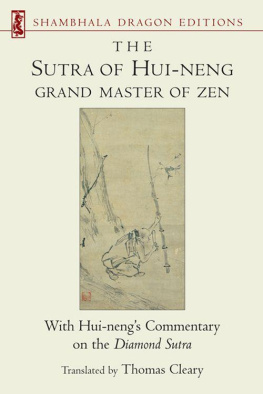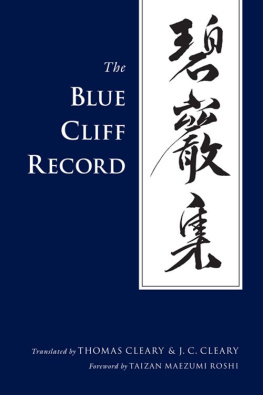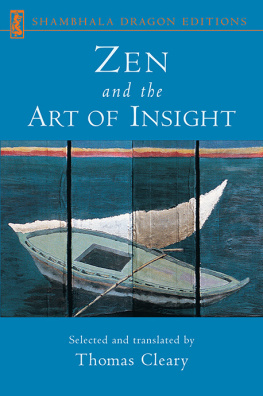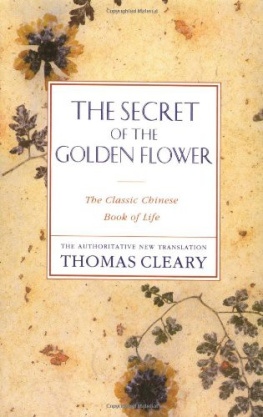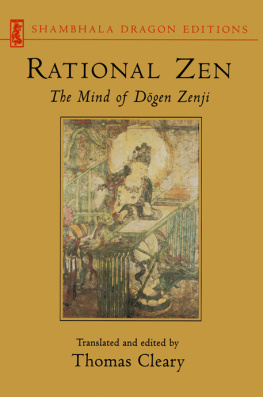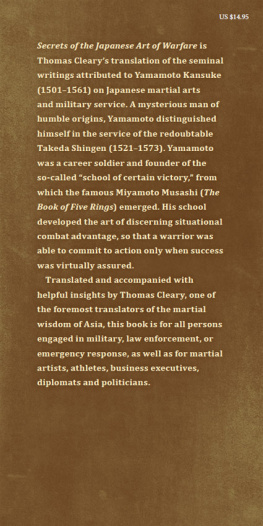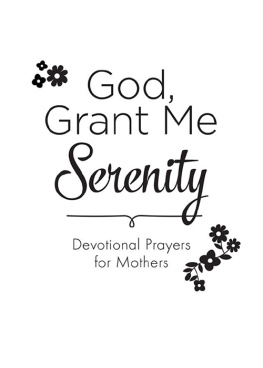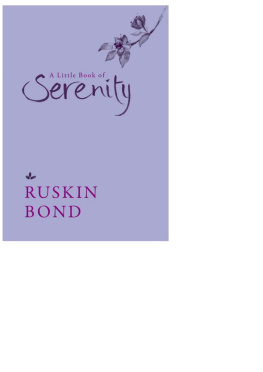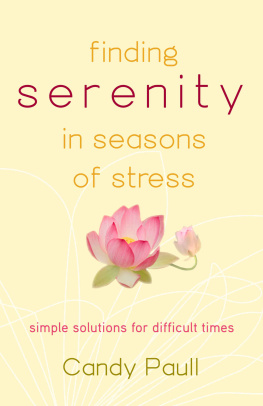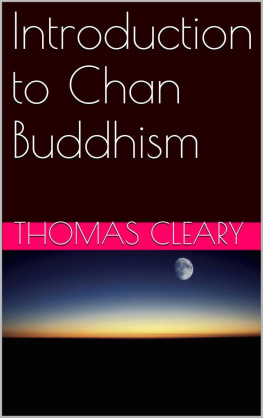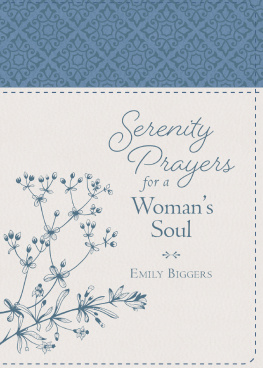Thomas Cleary - The Book of Serenity: Volume II
Here you can read online Thomas Cleary - The Book of Serenity: Volume II full text of the book (entire story) in english for free. Download pdf and epub, get meaning, cover and reviews about this ebook. year: 2017, genre: Children. Description of the work, (preface) as well as reviews are available. Best literature library LitArk.com created for fans of good reading and offers a wide selection of genres:
Romance novel
Science fiction
Adventure
Detective
Science
History
Home and family
Prose
Art
Politics
Computer
Non-fiction
Religion
Business
Children
Humor
Choose a favorite category and find really read worthwhile books. Enjoy immersion in the world of imagination, feel the emotions of the characters or learn something new for yourself, make an fascinating discovery.

- Book:The Book of Serenity: Volume II
- Author:
- Genre:
- Year:2017
- Rating:4 / 5
- Favourites:Add to favourites
- Your mark:
- 80
- 1
- 2
- 3
- 4
- 5
The Book of Serenity: Volume II: summary, description and annotation
We offer to read an annotation, description, summary or preface (depends on what the author of the book "The Book of Serenity: Volume II" wrote himself). If you haven't found the necessary information about the book — write in the comments, we will try to find it.
The Book of Serenity: Volume II — read online for free the complete book (whole text) full work
Below is the text of the book, divided by pages. System saving the place of the last page read, allows you to conveniently read the book "The Book of Serenity: Volume II" online for free, without having to search again every time where you left off. Put a bookmark, and you can go to the page where you finished reading at any time.
Font size:
Interval:
Bookmark:
The Book of Serenity
Volume II
Translated by Thomas Cleary
Thomas Cleary 2017
contents
51. Boat or Land?
52. The Reality Body
53. Dreg Slurpers
54. Great Compassion
55. The Rice Cook
56. The Rabbit
57. A Single Thing
58. Revilement
59. The Deadly Snake
60. The Cow
61. One
62. Enlightenment or Not?
63. Death
64. Succession
65. A New Bride
66. Head and Tail
67. Wisdom
68. Swinging the Sword
69. Cows
70. Nature
71. Eyebrows
72. The Monkey
73. Fulfillment of Filial Piety
74. Substance and Name
75. The Constant Principle
76. Three Statements
77. Enough
78. Sesame Cake
79. Advancing a Step
80. Passing the Brace
81. Coming to the District
82. Sound and Form
83. Tending the Sick
84. One Finger
85. The National Teachers Monument
86. A Great Enlightenment
87. Existence and Nonexistence
88. Not Seeing
89. No Grass
90. A Declaration
91. A Peony
92. A Jewel
93. Not Understanding
94. Unwell
95. One Stroke
96. A Disagreement
97. The Emperors Hat
98. Always Close
99. Bowl and Bucket
100. Mountains and Rivers
51. Boat or Land?
Introduction
In mundane truth how many people have been enlightened, in Buddhist truth how many people have been deluded? If they suddenly become one, can you then define delusion or enlightenment?
Case
Fayan asked elder Jiao, Did you come by boat or by land? It very much seems like there are two kinds.
Jiao said, By boat. He speaks deeply on the manifestation of reality and skillfully explains the essence of the teaching.
Fayan said, Where is the boat? Perhaps he didnt tell the truth.
Jiao said, The boat is on the river. After all he has a landing place.
After Jiao had withdrawn, Fayan turned and asked a monk standing by, You tell me, did that monk just now have eyes or not? What a pity.
Commentary
Once when Huanglong Huitang was questioning Huang Luzhi, just as he was really pressing him, someone came: Huitang asked him, Who sent you? The man said, The scholar Ye from Dalin. Huitang said, Is there a letter? The man said, Yes. Huitang asked, Where is the letter? The man reached back, took it from his sleeve, and presented the letter to Huitang. Huitang said, Study of the Way should reach this mans state. Huang Luzhi blushed with shame.s
Fayan asked elder Jiao if he came by boat or by land, and Jiao said by boat. Fayan said, Where is the boat? Here ninety-nine out of a hundred would present a display of their abilities, but he was at ease with reality, even and poisedwhere does he engage spear and shield with you?here he said, The boat is on the river. The old teacher of Cizhou said, Its like putting an eight-legged pot on the sandits no longer unsteady anywhere at all. Fayan then asked a monk beside him, Tell me, did that monk just now have eyes or not? This one question is most bafflingif you say he has eyes, what is there special or mysterious? If you say he doesnt have eyes, what gap do you see? Try to have Tiantong settle for sure:
Verse
Water doesnt wash water,
Spotlessly pure.
Gold isnt changed for gold.
Forge it into one mass.
Find a horse without knowing its color,
It cant be found by appearances.
Enjoy the lute without the strings.
It cannot be sought by way of sound.
Tying knots, drawing trigrams, when there are such things,
When laws are issued, crime is born.
Completely lost is the true pure mind of the original human.
Playing clever turns out clumsy.
Commentary
Water doesnt wash water, gold isnt changed for goldBuddha doesnt seek Buddha, Dharma doesnt speak Dharma. This is talk of the wonder horse, omitting its dull pallor. Those who get the message of the lute forget the strings.
According to The Masters of Huainan, Lord Mu of Qin ordered Bai Luo to raise a corral and look for a horse. After three months he returned and said, I got a horse, in Shaqiu; it is a yellow stallion. When the horse arrived, it was a black mare. The lord said to Bai Luo, In the horse you found, you didnt even know the color of its coat or whether it is a male or femalewhat a failure! Bai Luo sighed loudly and said, So it has come to this? What you see in the corral is the opportunity of heaven: getting the essential, forget the gross; seeing the inside, forget the outside. As it turned out, it was an excellent steed.
Tao Xuan of the Jin dynasty was named Yuanming. He didnt know how to play the lute, but he kept an unused lute, which had no strings. He said, If you just get the essence of the lute, why bother with the sound in the strings?
The I Ching says, In high antiquity, they tied knots for order; the wise people of later times changed this and used written notes. It also says, In ancient times, when Fu Xi was king over the land, he looked up and observed the patterns of the heavens, looked down and observed the designs of the earth, and observed the harmony of the markings of the birds and animals with the earth. Nearby, he found it in his body; afar he found it in things. From this he first drew the eight trigrams. I say when the most ancient ancestor first divided sky and earth, already he created an oppositionto tie knots and draw trigrams loses true innocence all the more. Before Shakyamuni had appeared in the world, and Bodhidharma hadnt yet come from the West, were there also real truth and conventional truth or mundane reality and enlightened reality?
After he had realized the truth, Chan master Jiju of Haihui in Shu province once went to Langya Jiaos place. Jiao asked him, Elder, where have you just come from? Jiju said, From Zhejiang. Jiao said, Did you come by boat or by land? Jiju said, By boat. Jiao said, Where is the boat? Jiju said, On the river. Jiao said, Without referring to the journey, how can you speak a phrase? Jiju said, Incompetent abbots are plentiful as flax and millet, and immediately left. I say his acts and words make a good story.
Master Dongshan Chu asked a monk, Where do you come from? The monk said, Ru province. Dongshan said, How far is it from here? The monk said, Seven hundred. Dongshan said, How many pairs of sandals did you wear out? The monk said, Three. Dongshan said, Where did you get the money to buy them? The monk said, Making rain hats. Dongshan said, Go to the hall. The monk said, Alright. I say even hands and eyes throughout the body cant see through you. But tell me, where are the monks eyes? Under his eyebrows.
52. The Reality Body
Introduction
Those who have wisdom can understand by means of metaphors. If you come to where there is no possibility of comparison or similitude, how can you explain it to them?
Case
Caoshan asked elder De, The Buddhas true reality body is like space; Officially not even a needle is admitted. it manifests form in response to beings, like the moon in water Privately even a horse and carriage are let through. how do you explain the principle of response? Id fold my hands, approach, and say Yes.
De said, Like an ass looking in a well. The falling flowers consciously go along with the stream.
Caoshan said, You said a lot indeed, but you only said eighty percent. If you want to see a thousand miles further
De said, What about you, teacher? climb a tier higher.
Caoshan said, Like the well looking at the ass. The flowing stream mindlessly carries the fallen flowers along.
Commentary
Chan master Benji of Caoshan in Fu province was also named Tanzhangthis must be an honorific title or a posthumous name. When he first left Dongshan, he went to Caoqi and paid respects to the monument of the sixth patriarch. Then he went back to Jishui in Ji province. The people there respected his fame and eventually asked him to start teaching there; to emulate Caoqi, wherever he lived the master named the place Cao. The school of Dongshan became most flourishing with Caoshan; therefore it was called Cao-Dong.
Next pageFont size:
Interval:
Bookmark:
Similar books «The Book of Serenity: Volume II»
Look at similar books to The Book of Serenity: Volume II. We have selected literature similar in name and meaning in the hope of providing readers with more options to find new, interesting, not yet read works.
Discussion, reviews of the book The Book of Serenity: Volume II and just readers' own opinions. Leave your comments, write what you think about the work, its meaning or the main characters. Specify what exactly you liked and what you didn't like, and why you think so.

